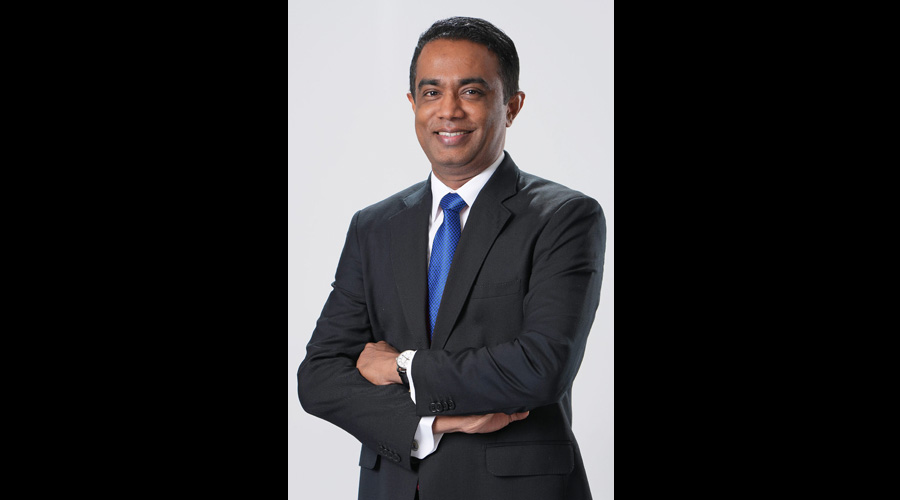We are a country with a commendably high general literacy rate, a strong foundation on which to build.
While our financial literacy, particularly in the area of insurance, has room to grow, this also presents us with an exciting opportunity.
By addressing this gap, we can identify new avenues for industry growth and strengthen national resilience.
As the Insurance Association of Sri Lanka (IASL), we see this moment as an opportunity to drive impactful change.
Our vision, as a collective, is to expand penetration, embrace technology and build lasting trust through greater financial awareness.
The future of Sri Lanka’s insurance industry
At present, Sri Lanka’s insurance penetration is just over one per cent of GDP, a figure that compares poorly even with many of our regional peers.
India and Indonesia, for example, have already surpassed us despite their larger and more complex markets.
Over the next three years, we aim to double this penetration in Sri Lanka.
To achieve this, we are working on developing new products and channels that can reach segments of the population which have remained underserved.
From micro-insurance and telco-driven products that appeal to lower and middle-income households, to tailor-made solutions for high-net-worth individuals, our approach must be inclusive and adaptive.
Ultimately, our goal is to increase GDP contribution while ensuring that every Sri Lankan has access to the protection and peace of mind that insurance provides.
Our vision also extends beyond numbers. Inspired by India’s commitment to insuring its population, we aspire to “insure the nation.”
I believe that more than half of Sri Lanka’s working population is already touched by insurance in some form, whether through micro products, corporate schemes or motor coverage.
But vast gaps remain, especially in areas such as household property insurance, where coverage is low unless tied to mortgages.
These are the areas where the industry must redouble its efforts.
Innovation, technology and digitalisation
Technology will be at the heart of this transformation.
The global insurance industry is racing towards digitisation, data analytics, and automation and Sri Lanka must keep pace.
Digital platforms enable faster processes, more accurate risk assessments and a seamless customer experience.
Within IASL, we are prioritising digitalisation initiatives that will streamline operations across the industry and align our practices with global standards.
A key part of this effort is ensuring that the entire industry is ready to comply with the new IFRS 17 guidelines by January next year.
While some companies are well on their way to readiness, others are still preparing.
Artificial intelligence, in particular, presents both opportunities and challenges.
If used effectively, AI can improve underwriting, enhance claims management and help insurers understand risks more precisely, allowing for fairer and more accurate pricing.
This benefits both the customer, who pays a premium that reflects their real risk and the insurer, who is protected against unsustainable losses.
Yet Sri Lanka still faces significant hurdles in harnessing the full potential of AI.
Much of our health and property data remains in paper-based formats, making it challenging to analyze.
Hospitals, for instance, are only slowly adopting digital records, and there is little standardisation across institutions.
To truly reap the benefits of AI, we must invest in digitizing critical infrastructure and data systems, ensuring that information can be collected, shared and analyzed responsibly.
Building consumer trust and financial literacy in insurance
Equally important to our growth agenda is the task of strengthening financial literacy and consumer trust.
While awareness of insurance has improved in recent years, particularly in the wake of the pandemic and the economic downturn, many Sri Lankans still view insurance with scepticism.
Some see it as a luxury, others doubt whether claims will be honoured.
Additionally, a worrying number of policies lapse after the first year due to poor need-based assessments at the point of sale.
These issues erode confidence in the industry as a whole.
To change this narrative, IASL has launched awareness programs aimed at educating both young people and adults on the importance of financial planning and protection both online and on ground.
Furthermore, earlier this year, the Insurance Regulatory Commission of Sri Lanka initiated a series of regional awareness sessions, which we as the IASL were very pleased to join in as we jointly conducted the first awareness session in Matara and a second program is planned for Jaffna later this year.
Our goal is to hold such sessions every quarter, reaching schools, universities and community groups.
By starting with the younger generation, we can help instill a culture of financial discipline and ensure that future decision-makers recognize the role of insurance in securing their lives and families.
The insurance industry cannot achieve its objectives in isolation.
We are actively working to build stronger partnerships with reinsurers, brokers, banks, telecommunications providers, healthcare institutions and IT companies.
Through bancassurance models, digital hospital networks and cross-sector CEO forums, we are aiming for a more connected ecosystem that can expand access to insurance while improving service delivery.
At the same time, we must recognize the importance of discipline and ethical conduct within our industry.
Regulators are stepping in with stricter frameworks, such as mandatory welcome calls, customer satisfaction tracking and more rigorous need-based analysis, to prevent mis-selling and enhance customer confidence.
IASL fully supports these reforms and has gone a step further by maintaining an industry-wide database to prevent unethical advisors from moving unchecked between companies.
By tightening standards and raising accountability, we are determined to ensure that every customer receives the value and protection they are promised.
The essence of this vision is a call to every Sri Lankan, which is not to view insurance as a luxury, but as a vital necessity for a secure future; an indispensable financial safety net which helps one surmount untold hardships if life were to throw a curveball.
It is the peace of mind that allows you to face an uncertain future with confidence.
It relieves the burden on government services, protects families from financial ruin and ensures that hard-earned assets are preserved.
Whether it is life, health, retirement or property coverage, adequate insurance is one of the most responsible decisions an individual can make.
Sri Lanka has much to learn from developed markets, where insurance penetration is far higher and the benefits are widely understood.
By combining innovation, technology, financial literacy and strong governance, we too can build an industry that secures the well-being of our nation.
The journey ahead will not be easy, but with determination and collaboration, we can ensure that every Sri Lankan enjoys the protection and peace of mind that insurance provides.
(The writer is the President of the Insurance Association of Sri Lanka)





















